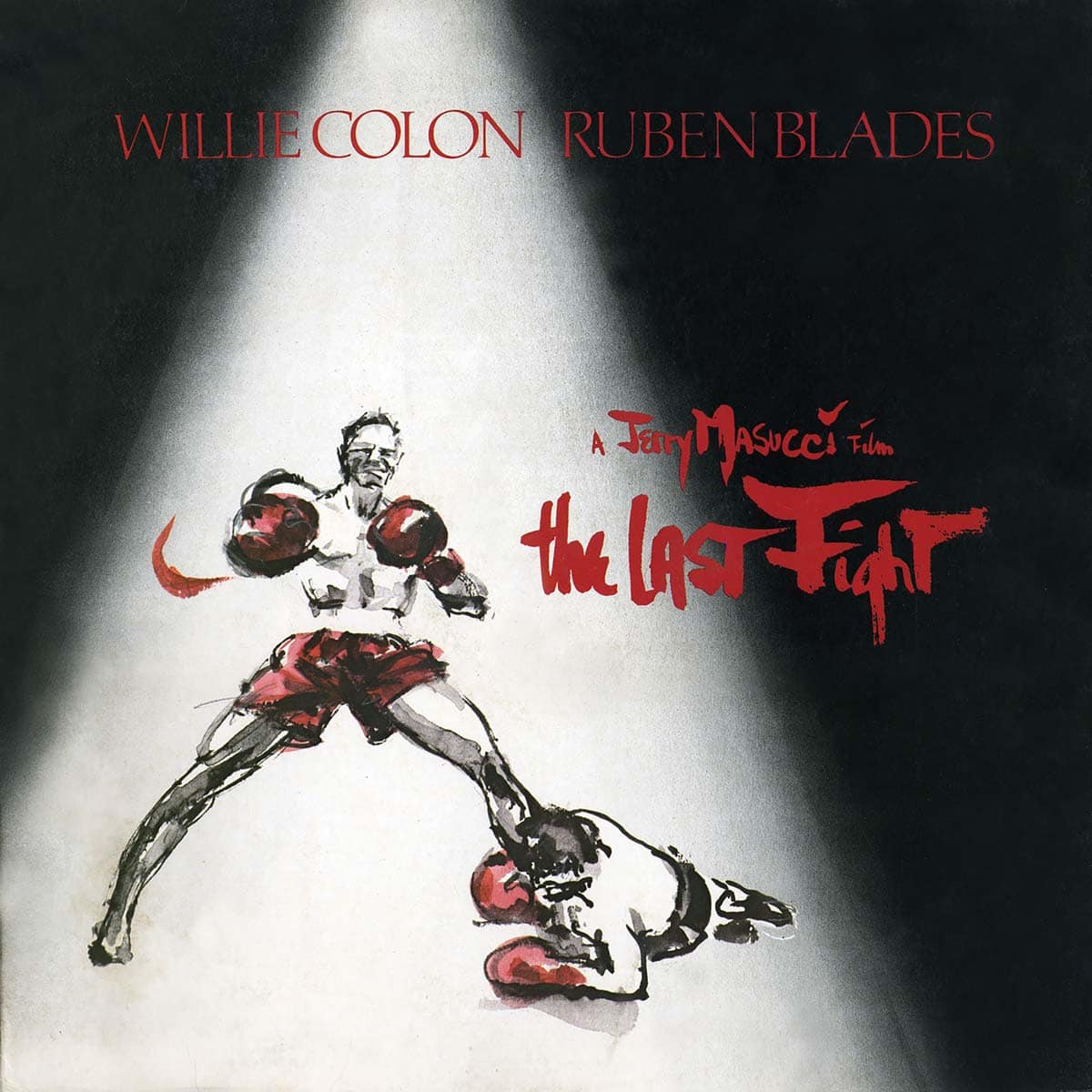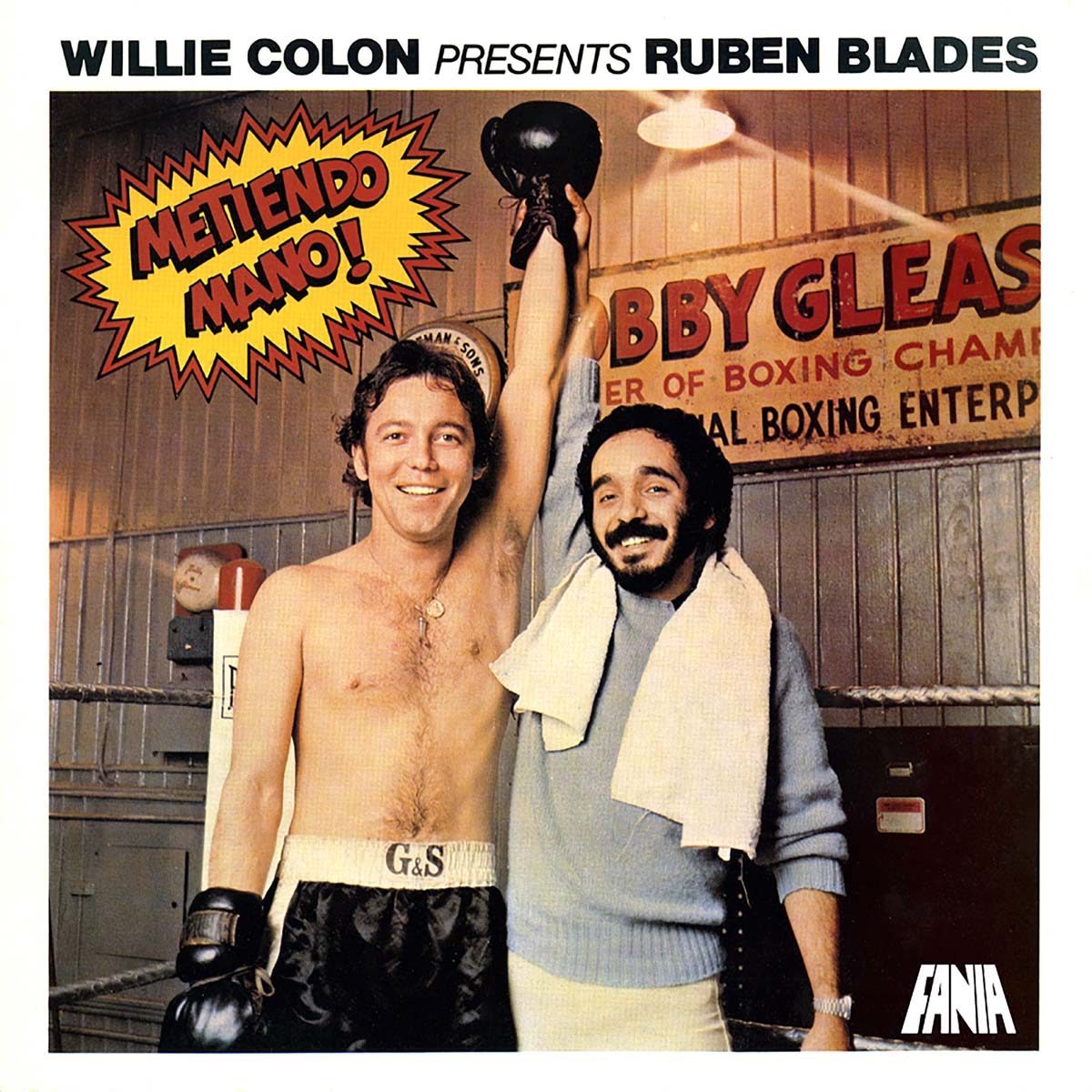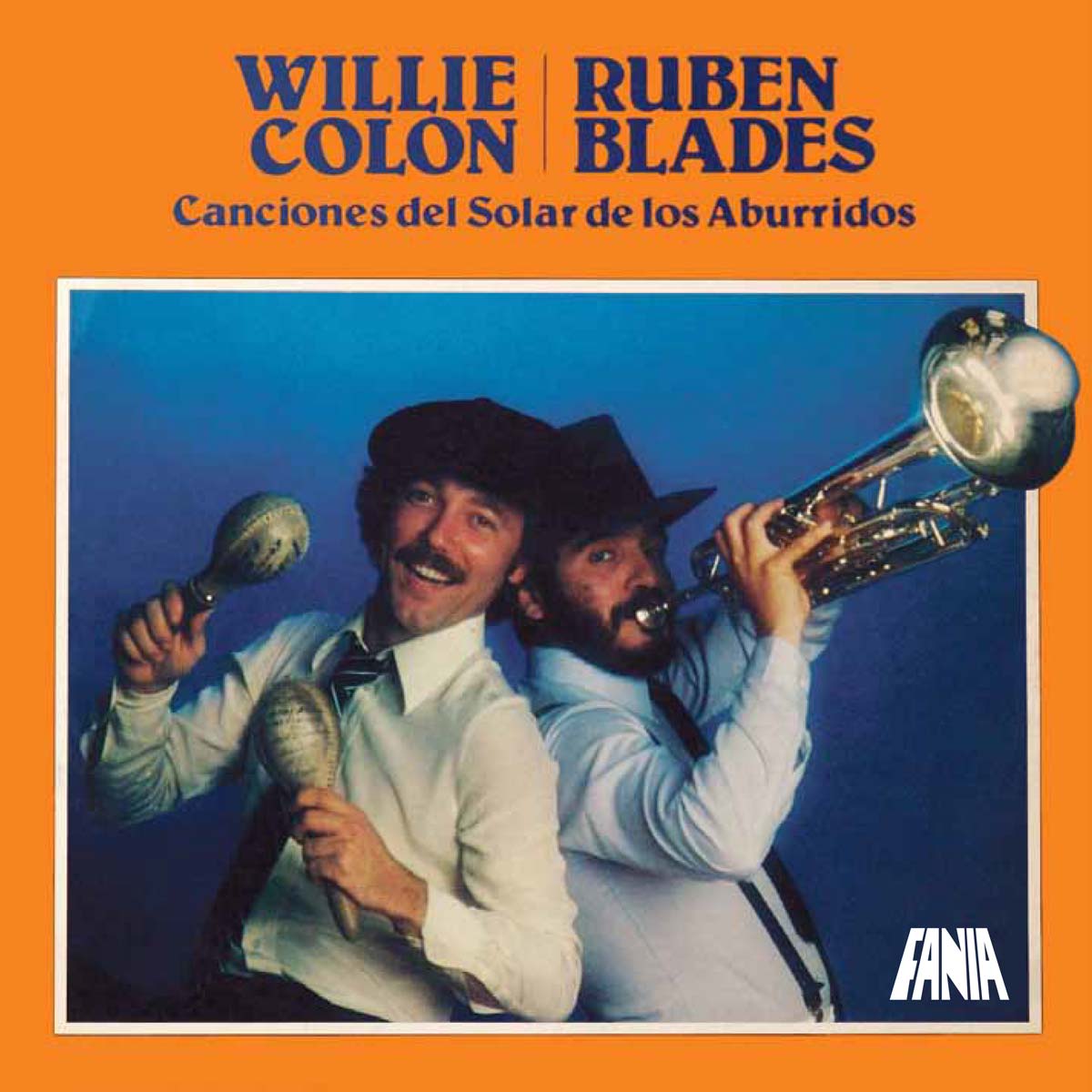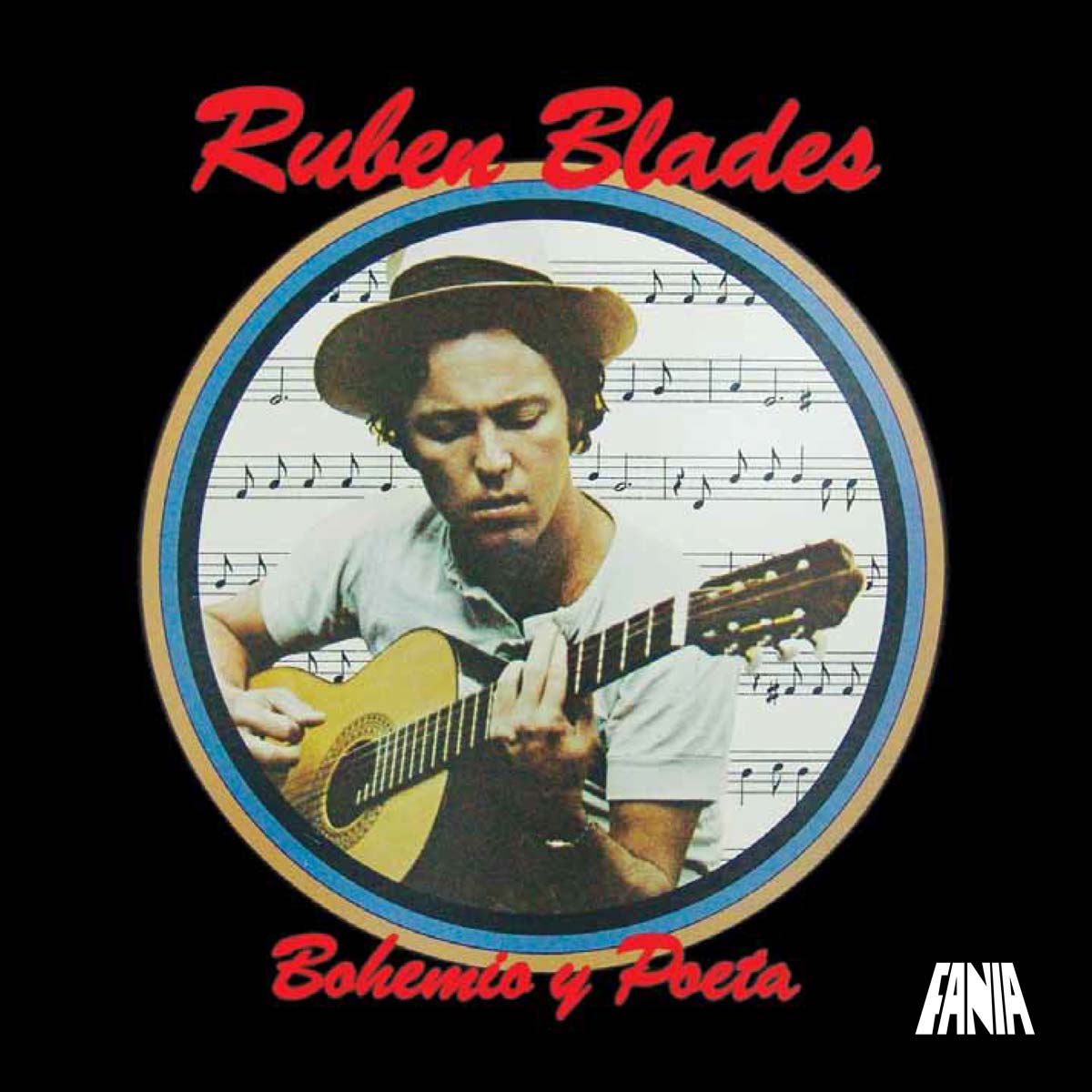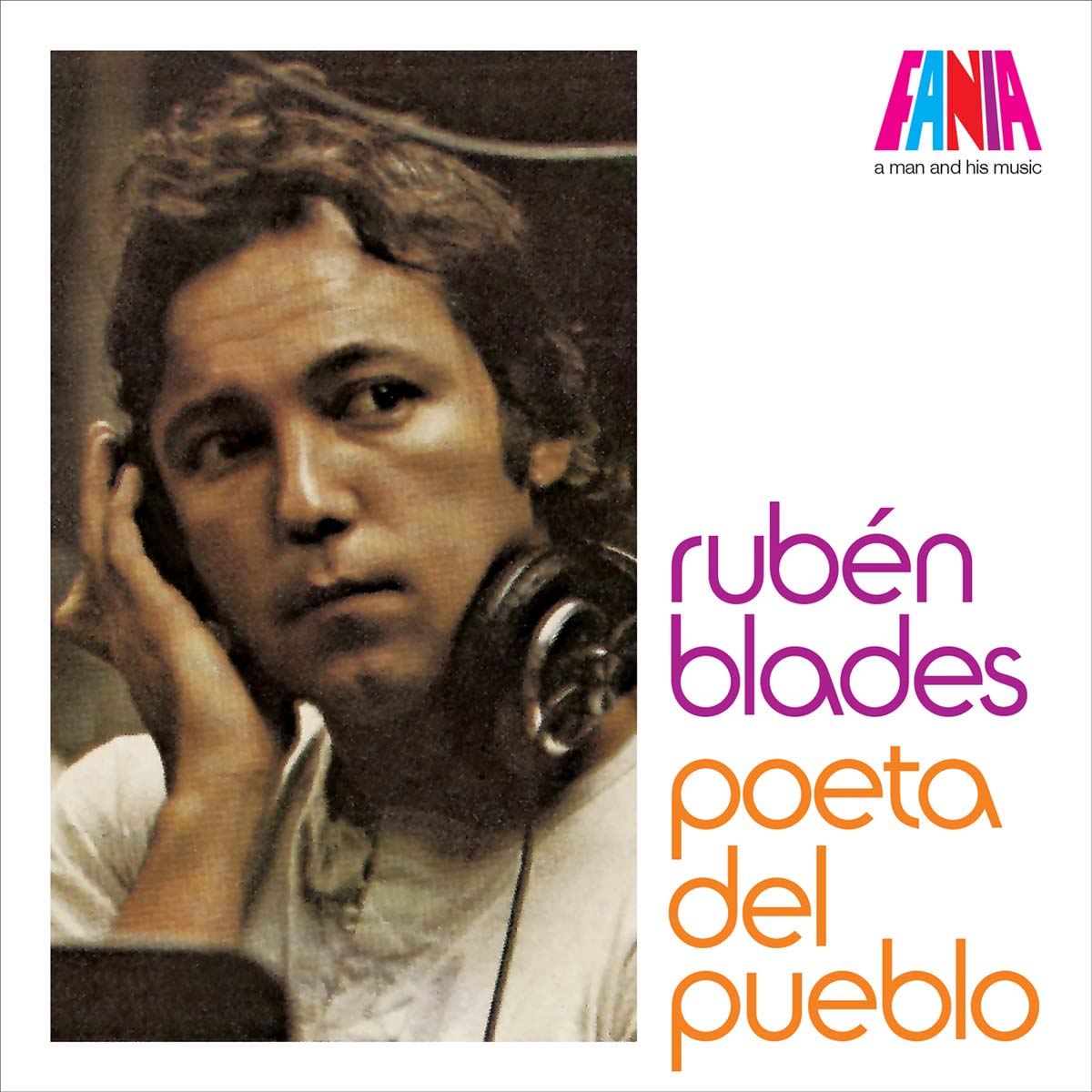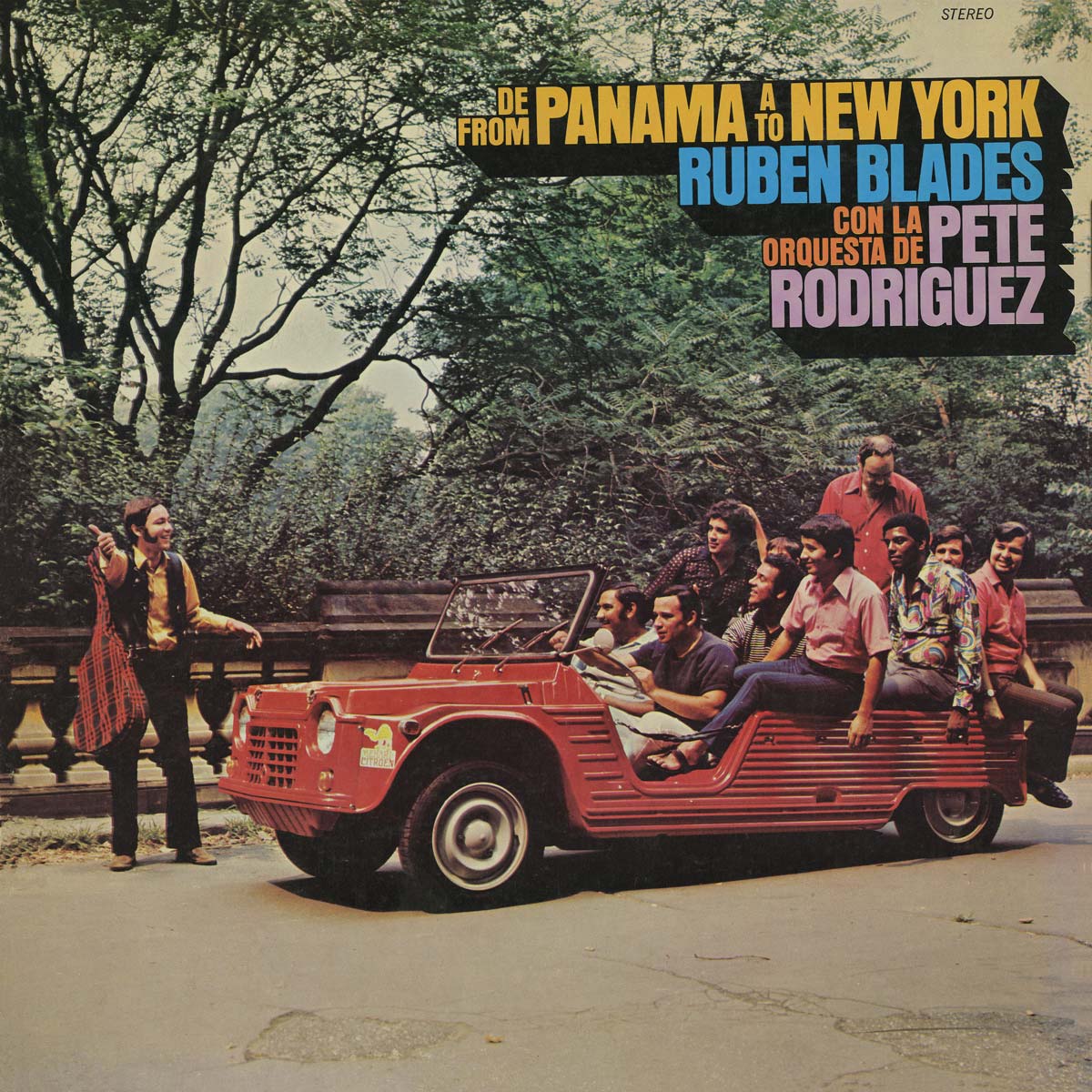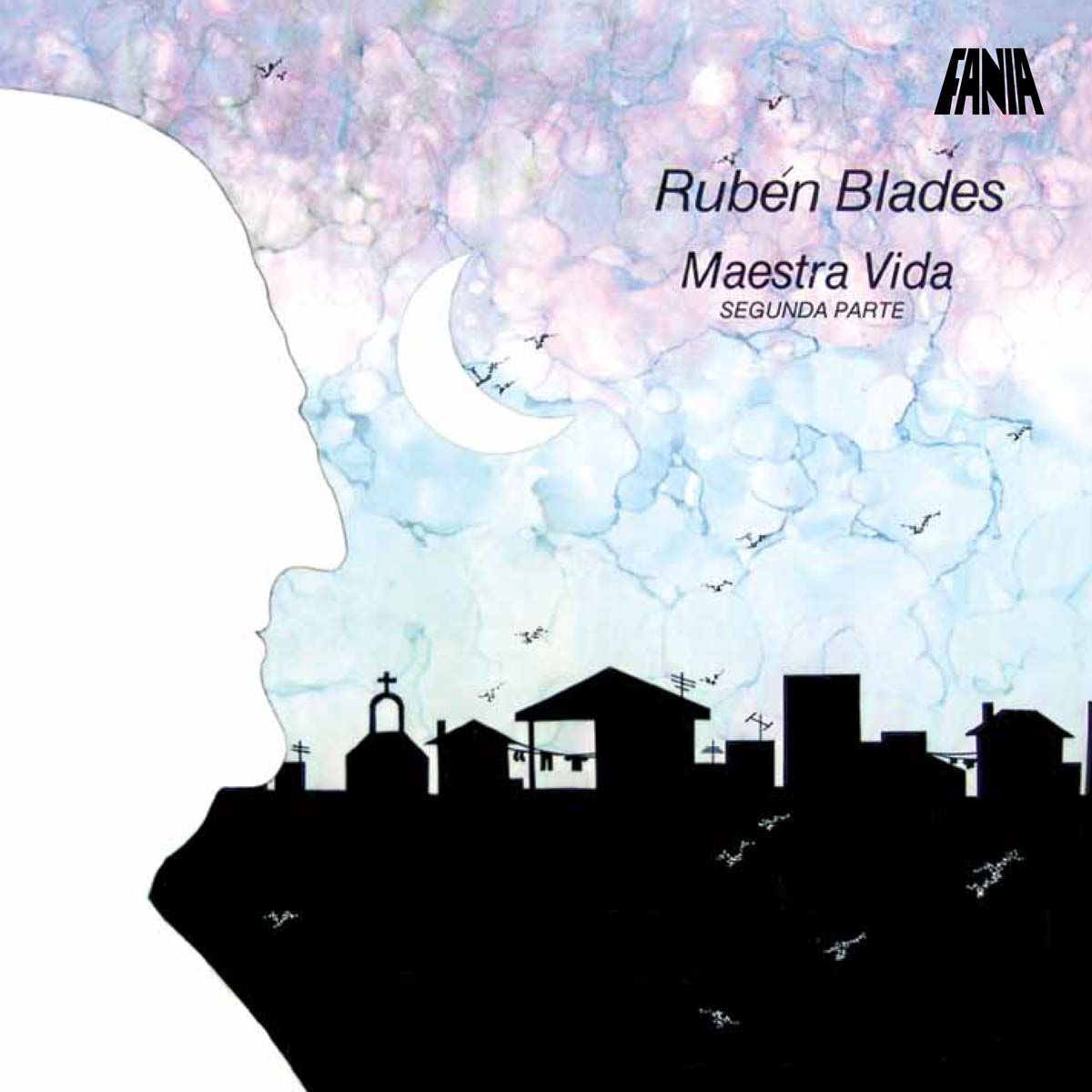
A tour de force, “Maestra Vida” deconstructs the salsa formula of the times, creating a smooth fusion of classical, Latin music and urban mood settings while keeping time to a clave structure. Lushly orchestrated and produced by Willie Colon who fuses and focuses on various Latin music genres including samba, bossa, plena, bomba and decimas along an Afro-Cuban matrix of metered beats and sounds, “Maestra Vida” goes beyond the predictably hard dance style music into a more profound reflective level of art and culture.
Siembra had already marked Blades’ territory as a profound sonero/songwriter of social and political content who also happened to have a helluva swing. In those liberal New York times Blades stood out as artist/immigrant/working class hero giving voice to the struggling Latino. In war torn Latin America however, that same standing had a double edge as the military disrupted concerts while government controlled press interrogated rather than interviewed promoters and artists.
In New York, Blades was battling the record label for royalties while struggling to unionize Latin New York musicians. The first meeting was in a passion filled room of high emotions from musicians, press, colleagues and sympathetic industry people. Gradually, what began with commitment, dissipated into embargoed phone calls as record execs sought vengeance. Withdrawing perks like credit cards and personal appearances from musicians suspected of joining Ruben’s union organizing efforts –only a handful stood by the idealistic artist, including Willie Colon and his mentor-Cheo Feliciano.
The son of a Cuban mother and a Colombian father, the Blades family grew up poor in Panama. His experiences, memories, songs and prose come from that bittersweet well of want and worry that defines and outlines communities in struggle, disillusioned by religion and betrayed by government. A community separated into the virtuous and the desperate, Blades naturally sees through the eyes of the forgotten; sees the future with a cynical hope that springs from youthful dreams of mysticism where nothing is impossible.
This is any story in Latin America. In this case the story of the sweet sastre (tailor) Carmelo, his love of Manuela, their courtship, marriage, childbirth of Ramiro and the hard times.
The music, as the writing, is sumptuous and grand. A classical motif of strings, flute, French horns, and oboe fades into an orchestrated pop chacha, bossa nova fusion that reclines into a Cheostyle bolero intro. Heralded by French horns, it swings back to the classics followed by a percussive pop chacha bossa that presents our narrator who introduces us to the bravura of the characters sitting in the Bar of the Boring…You can hear Ruben playing one of the fellows demonstrating just a glint of the acting ability he was later to develop and pursue.
Over commercial radio only an edited version of “Manuela” was played. On this extended version, Ruben’s phrasing reflects the rhythmic Maelo influence on the Panamanian, already an admirer and friend of the Puerto Rican singer Ismael Rivera. A tremendous trombone solo by Leopoldo Pineda is featured along with the funky and quite distinctive throughout the recording bass work of Sal Cuevas.
This number segues into another chacha where the band’s branding is delivered through the famous chorus of Milton Cardona, José Mangual, Jr. and Willie Colon.
The danza “Yo Soy Una Mujer” stands out by dint of purpose and empowerment. It’s sense of confidence and haughty yet sultry feminine pride belies the pen of its male author. Yet, it is Ruben’s own mother, Anoland Diaz (an accomplished pianist) who sings the piece with a singular pride and passion that is head turning while its finale becomes tear welling as mother and son join in duo as husband and wife in character.
Volume I of “Maestra Vida” closes on Carmelo’s frustration. Highlighting the character’s musical lament and cry for justice is the beat of a bomba with a chorus that quickly turns into a more upbeat plena –Dejenme Reir (Para No Llorar) –that now pokes fun at the hypocrites running for office in Manuel’s town. Meanwhile, Manuel desperately tries to support his family.
“El culpable de mi infierno es el gobierno…..”
Back to the “Bar of the Boring” in Vol. II
Written by por Aurora Flores


